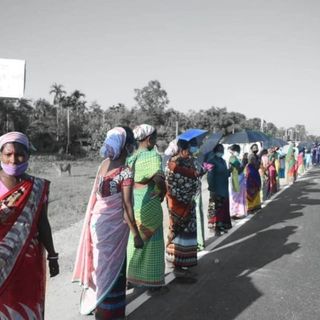On Tuesday, the Delhi Court hearing the defamation case against Priya Ramani transferred the case, citing lack of jurisdiction. The Rouse Avenue Court, according to Judge Vishal Pahuja, only has jurisdiction to hear cases against Members of Parliament, rather than cases filed by them.
Judge Paluja cites a 2018 Supreme Court Order to set up special courts for cases against MPs/MLAs as his reason for transferring this case. As of September 2020, the Supreme Court had again directed the Delhi High Court to set up new courts and fast-track cases against present and former MLAs. Multiple cases were also transferred from Judge Paluja’s court to the other courts. However, M.J. Akbar’s case was not among these cases, so it remains unclear exactly why Akbar’s case is being transferred now, especially when it is at its tail-end.
This sudden ruling has been a great source of frustration for individuals closely watching the case, as most jurisdictional matters are sorted out before the case begins, rather than almost two years into it. The defense will now need to repeat of seven days’ worth of final arguments put forth by lawyer Rebecca John — which were delivered on separate days between February 7, 2020, and September 19, 2020. Considering the months it takes to prepare final arguments for each case, and court date scheduling — impacted by both caseloads and the current pandemic, this case is likely to drag on for a long time.
Related on The Swaddle:
#MeToo One Year Later: Where Are All The Accused Men?
Though Ramani’s allegations about Akbar’s behavior are corroborated by the accounts of 20 other women journalists, this meandering defamation case levied against her is an example of how ‘due process’ continues to re-traumatize women who have dealt with sexual harassment. Even if women choose to speak up via the #MeToo movement, accused perpetrators may trap them in defamation cases that take years to resolve, thanks to the archaic functioning of the Indian judiciary. This means years of time and expensive legal fees funneled into a system that will make the survivor relive their horror, face slander, and likely eventually break under its oppressive weight.
The skewed power dynamic in Ramani v Akbar is obvious. Akbar is a renowned journalist and ex-Minister, whose money and connections give him the resources to outlast Ramani in a legal battle. Plus, he is now using his fame as a journalist, academic, and Minister to call Ramani’s allegation a ‘political conspiracy,’ encouraging the thinking that a man of such eminence would never engage in predatory behavior.
A 2020 survey by the Network of Women in Media states one-third of women in media faced sexual harassment at the workplace. A 2017 survey reported that 70% of nearly 6,000 women did not report sexual harassment in the workplace because of fear of repercussions. In 2018, Ramani became a symbol to legions of women who faced sexual harassment at the workplace. Now, as she fights a long, unpredictable battle to defend herself against Akbar’s defamation claims, her case becomes a symbol, yet again, of how complicated and fraught reporting harassment and abuse can be.




